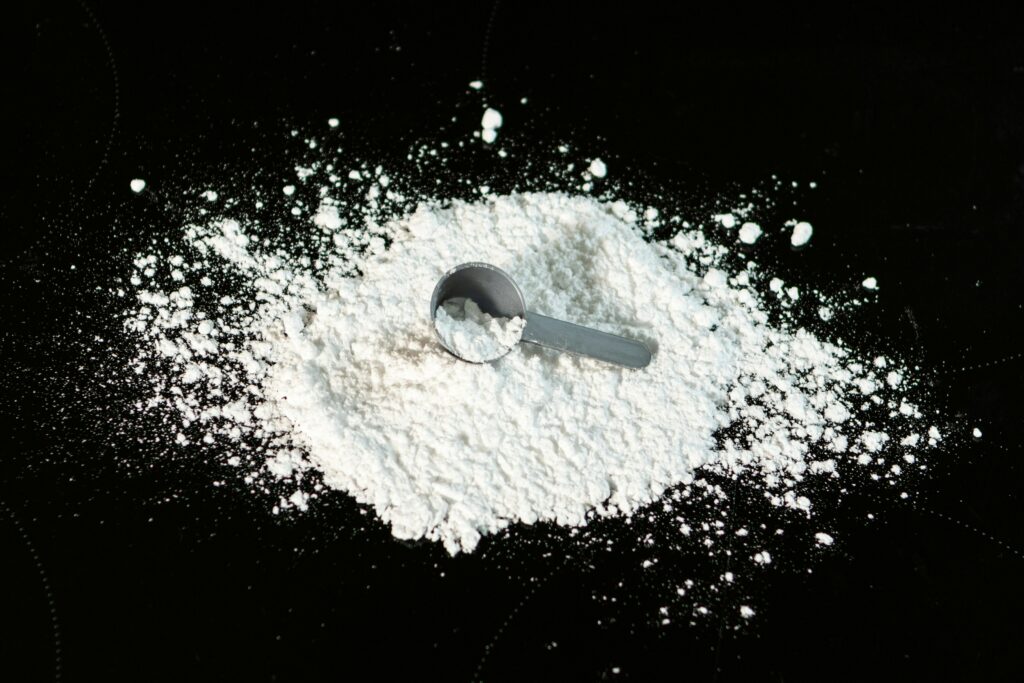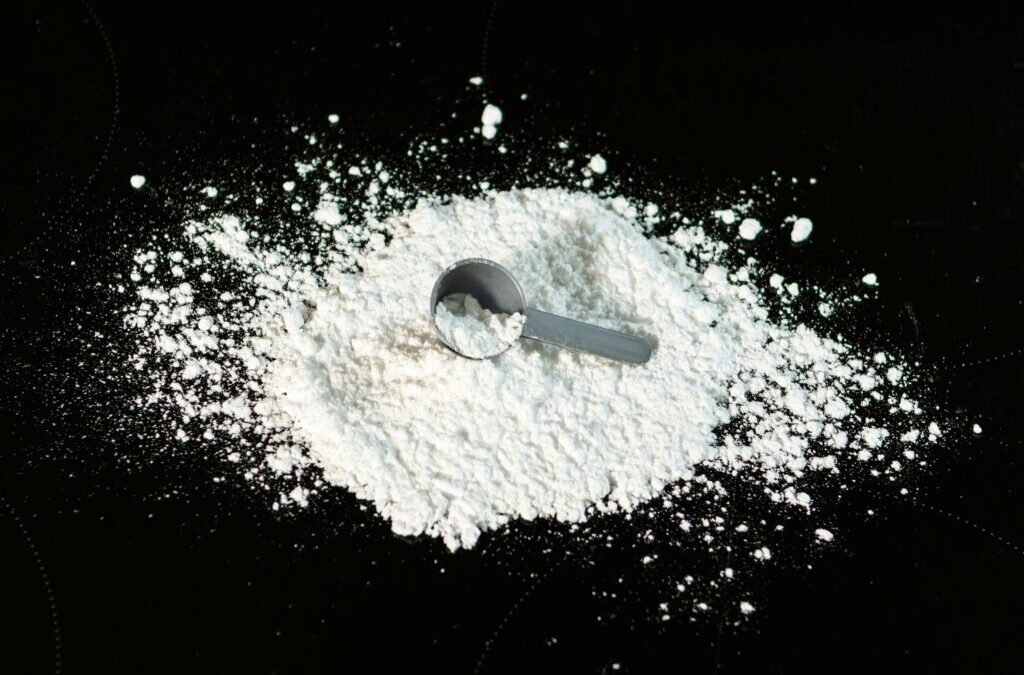
For tennis players, the right nutrition can be the difference between winning a long, grueling match and hitting the wall to injury prevention through proactive planning. If you’ve wondered whether amino acid supplements belong in your training routine , this guide will break down the science, benefits, and practicalities to help you make an informed decision.
Note : I can’t stress this enough always consulta your Physician /Medical doctor prior to taking any and all supplements.
What Are Essential Amino Acids and BCAAs?
To understand the supplement, you first need to understand the building blocks.
- Essential Amino Acids (EAAs): These are nine amino acids that your body cannot produce on its own. You must get them from your diet. They are: Histidine, Isoleucine, Leucine, Lysine, Methionine, Phenylalanine, Threonine, Tryptophan, and Valine. Think of them as the complete set of tools needed to build and repair your body.
- Branched-Chain Amino Acids (BCAAs): This is a subgroup of three essential amino acids—Leucine, Isoleucine, and Valine—named for their branched chemical structure. They are unique because they are primarily metabolized in the muscle, not the liver, making them a direct energy source during exercise.
Do Tennis Players Need EAAs or BCAAs?
The short answer is: you absolutely need Essential Amino Acids, but whether you need them in supplement form is a different question. Let’s look at the tennis-specific science.
A study published in the British Journal of Sports Medicine that followed national-level male tennis players during a 4-hour continuous match found a significant reduction in their BCAA levels. This suggests that during prolonged tennis play, your body burns through these specific amino acids for fuel.http://Strüder, H. K., Hollmann, W., Duperly, J., & Weber, K. (1995). Amino acid metabolism in tennis and its possible influence on the neuroendocrine system. British Journal of Sports Medicine, 29(1), 28–31.
Benefits for Tennis PLAYERS
- Enhanced Muscle Recovery: This is the most researched benefit. BCAAs, particularly leucine, can help reduce exercise-induced muscle soreness and speed up the repair process by promoting muscle protein synthesis. This means you could feel less stiff and be ready for your next training session or match more quickly.
- Reduced Mental Fatigue: Tennis is as much a mental game as a physical one. Changes in amino acid levels during exercise can influence brain chemistry. BCAA supplementation may help maintain focus and combat fatigue during long matches.
- Prevention of Muscle Breakdown: During intense and prolonged exercise, your body may start breaking down muscle protein for energy. BCAAs can help protect your hard-earned muscle mass by providing an alternative fuel source.
- Supports Overall Performance: EAAs are crucial for building and repairing not just muscle, but also tendons, ligaments, and collagen—all of which are under constant stress in tennis. For example, lysine is vital for collagen production, which is essential for joint health.
When to Take EAAs and BCAAS
Timing your intake can help optimize the benefits:
- Before Exercise (30-60 minutes): Taking BCAAs pre-match or training can prime your muscles with a direct energy source and may help reduce fatigue.
- During Exercise: Sipping on a drink with BCAAs or EAAs during a long match or intense training session can help maintain amino acid levels as they become depleted.
- After Exercise: Consuming them within 30 minutes of your last session to the muscle recovery and repair process.
Side Effects and Risks
BCAAs are generally considered safe for most healthy adults when taken in recommended doses (typically up to 20 grams per day). However, there are some considerations:
- Medical Conditions: People with ALS (Lou Gehrig’s disease), maple syrup urine disease, or kidney or liver disease should avoid BCAA supplementation.
- Blood Sugar: BCAAs can interfere with blood glucose levels, so those with diabetes or undergoing surgery should use caution.
- Medication Interactions: They may interact with medications for diabetes, Parkinson’s disease, and thyroid conditions. Always consult your doctor before starting any new supplement.
Do You Need Supplements If You’re Eating Protein?
This is the most common question, and the answer is: it depends on the completeness of your diet.
If you are consistently eating a well-balanced diet with adequate complete protein or protein supplements, you may not need additional EAAs or BCAAs.
- Protein-Rich Meals Provide EAAs: High-quality protein sources like whey protein, eggs, chicken, fish, and beef contain all nine essential amino acids your body needs for recovery and muscle synthesis.
- Tennis-Specific Nutrition is Key: The International Tennis Federation (ITF) emphasizes that a varied, well-balanced diet is the foundation for performance. Tennis players should focus on adequate fluids, electrolytes, carbohydrates, and protein from whole foods. For a 150-pound (68 kg) tennis player, this translates to roughly 102-116 grams of protein per day from food sources.
So, When Is Supplementation Useful?
- Convenience During Training/Match: When it’s impractical to eat a whole food meal immediately before, during, or after activity, a quickly absorbed supplement can be beneficial.
- Very High Training Volumes: If your weekly schedule includes 25-30 hours of on-court and gym work, your body’s demand for aminos may exceed what you can comfortably get from food alone.
- Plant-Based Athletes: If you follow a vegan diet, you need to be more mindful about combining plant proteins to get all EAAs. A supplement can help ensure you’re not missing out.
The Bottom Line: Whole foods and protein powders should be your primary source. Use EAA/BCAA supplements ONLY as a strategic tool to fill gaps in your nutrition, not as a replacement for a solid tennis diet.
Action Plan
For tennis players, ensuring adequate intake of Essential Amino Acids is non-negotiable for recovery, performance, and longevity in the sport. While BCAAs can offer targeted benefits for muscle recovery and fatigue, their need diminishes if you are already meeting your protein needs with high-quality foods.
Your Action Plan:
- Audit Your Diet First: Track your food intake for a week. Are you consistently hitting your daily protein target (1.5-1.7g per kg of body weight) with complete protein sources?.
- Prioritize Protein Timing: Focus on having a protein-dominant meal 2-3 hours before and within 30 minutes after your tennis sessions.
- Supplement Strategically: If you identify a gap—especially around training times—consider adding an EAA or BCAA supplement. Start with a lower dose to assess your body’s response.
You can make an informed after consulting your Medical Doctor/Physician choice to support your game and recovery, helping you stay on the court longer and perform at your peak.
Check some of the good quality and branded supplements https://www.amazon.com/shop/ranilharshana/list/3BCJCA3IIRA9D
Tennis Fitness Books : https://www.amazon.com/tennis-fitness/dp/1492867969
Tennis Wellness & Performance : https://www.amazon.com/dp/B0DPL48X51
Wellneshttps://www.amazon.com/WELLNESS-EVEXIA-365-CCCLXV-Perspective/dp/B0CDZ21SNN/
Reference list
Strüder, H. K., Hollmann, W., Duperly, J., & Weber, K. (1995). Amino acid metabolism in tennis and its possible influence on the neuroendocrine system. British Journal of Sports Medicine, 29(1), 28–31.
Trexler, E. T., et al. (2024). International society of sports nutrition position stand: essential amino acid supplementation on skeletal muscle and performance. Journal of the International Society of Sports Nutrition, 21(1), 2291244. (DOI: 10.1080/15502783.2024.2291244)
Kimball, S. R., & Jefferson, L. S. (2006). Signaling pathways and physiological mechanisms that regulate protein synthesis in skeletal muscle. Journal of Applied Physiology, 101(3), 896-904. (DOI: 10.1152/japplphysiol.00160.2006)
Wolfe, R. R. (2017). Branched-chain amino acids and muscle protein synthesis in humans: myth or reality? Journal of the International Society of Sports Nutrition, 14(1), 30. (DOI: 10.1186/s12970-017-0184-9)
Salem, M. D. E. M. A., et al. (2024). Branched-Chain Amino Acids Supplementation and Post-Exercise Recovery: An Overview of Systematic Reviews. Nutrients, 16(4), 589. (DOI: 10.3390/nu16040589)
Plaza-Diaz, J., et al. (2022). Oral Branched-Chain Amino Acids Supplementation in Athletes: A Systematic Review. Nutrients, 14(19), 4002. (DOI: 10.3390/nu14194002)
Blomstrand, E., et al. (2006). Branched-chain amino acids activate key enzymes in protein synthesis after physical exercise. Journal of Nutrition, 136(1 Suppl), 269S-73S. (DOI: 10.1093/jn/136.1.269S)
Howatson, G., et al. (2012). Exercise-induced muscle damage is attenuated in healthy young males after branched-chain amino acid supplementation. Journal of Nutrition, 142(12), 2095-2102. (DOI: 10.3945/jn.112.158145)


